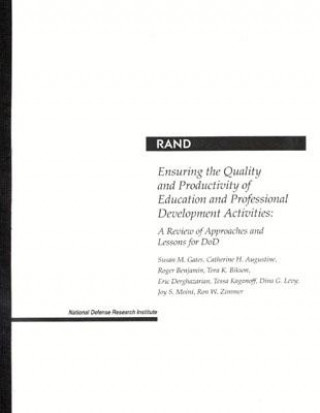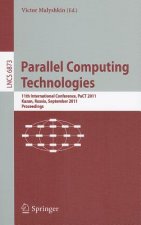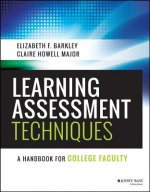
Kód: 04733745
Ensuring the Quality and Productivity of Education and Professional Development Activities
Autor Susan M. Gates, Roger Benjamin, Tora K. Bikson, Catherine H. Augustine, et al
With some 700,000 civilian employees, the Department of Defense is the single largest employer of civil service workers in the U.S. government. At the request of the DoD Office of the Chancellor for Education and Professional Deve ... celý popis
- Jazyk:
 Angličtina
Angličtina - Vazba: Brožovaná
- Počet stran: 234
Nakladatelství: RAND, 1999
- Více informací o knize

801 Kč
Dostupnost:
50 % šance Máme informaci, že by titul mohl být dostupný. Na základě vaší objednávky se ho pokusíme do 6 týdnů zajistit.
Máme informaci, že by titul mohl být dostupný. Na základě vaší objednávky se ho pokusíme do 6 týdnů zajistit.Prohledáme celý svět
Mohlo by se vám také líbit
-

Die Schanz
248 Kč -

Parallel Computing Technologies
1565 Kč
Dárkový poukaz: Radost zaručena
- Darujte poukaz v libovolné hodnotě a my se postaráme o zbytek.
- Poukaz se vztahuje na celou naši nabídku.
- Elektronický poukaz vytisknete z e-mailu a můžete ihned darovat.
- Platnost poukazu je 12 měsíců od data vystavení.
Informovat o naskladnění knihy
Zadejte do formuláře e-mailovou adresu a jakmile knihu naskladníme, zašleme vám o tom zprávu. Pohlídáme vše za vás.
Více informací o knize Ensuring the Quality and Productivity of Education and Professional Development Activities
Nákupem získáte 80 bodů
 Anotace knihy
Anotace knihy
With some 700,000 civilian employees, the Department of Defense is the single largest employer of civil service workers in the U.S. government. At the request of the DoD Office of the Chancellor for Education and Professional Development, RAND undertook a study to examine the approaches used to evaluate academic quality and productivity in a variety of postsecondary education and training contexts, including corporations, state governments, and universities. The study then considered which approaches might be most relevant to the Chancellor's office. Recommendations are based on a broad review and synthesis of the related literature and documentation from organizations engaged in education assessment, as well as information gathered through expert interviews, conferences, and site visits to exemplary organizations. The report identifies four general approaches to assessment and discusses the strength and weaknesses of each in different settings. The study also considers the overall context for assessment and recommends that the DoD develop a clear link between education and professional development on the one hand and the overall mission of DoD on the other. In addition, it interviewed assessment experts and visited organizations that conduct such evaluations. NDRI identified several ways that the Chancellor might structure such evaluations. He or she can allow individual DoD institutions or programs to review the quality and productivity of their efforts, with no outside involvement. Such a review process can be monitored by the Chancellor's office or a third party. Alternatively, the Chancellor's office can take on the entire review process itself or turn it over to an outside organization. Or the Chancellor can focus not on the institutions or programs but on their outcomes and attempt to measure and certify student achievement. Each approach has strengths and weaknesses; each works well in a different setting. But given that the DoD system of education and professional development is highly complex and decentralized and that the Chancellor's office has little formal authority over the organizations providing courses, the most promising assessment approach would involve intermediaries, NDRI found. Such intermediaries would be responsible for evaluating the processes that individual departments and schools employ to assess the quality and productivity of their educational efforts. These intermediaries could be other DoD entities or non-DoD organizations. This practice would be similar to quality improvement efforts that have been used in the business world for the last 25 years and that were adopted by the International Organization for Standardization (ISO) in the 1980s to certify that manufacturing companies worldwide adhere to certain quality standards. This practice also would be similar to academic audits that increasingly are being used in other education settings. Such audits typically are conducted by intermediary organizations and focus on assuring that providers of education have effective processes in place to measure their own quality and engage in ongoing self-improvement. The study also recommended that the Chancellor's office be responsible for more than just assessments of existing education and development efforts. Following the lead of many corporations and educational institutions, the Chancellor's office should develop a clear link between education and professional development on the one hand and the basic mission of the DoD on the other, the study suggests. In practice, this would mean that the Chancellor's office should advocate for the development of a central learning organization within the DoD that would be modeled after a corporate learning organization or state higher education coordinating board. Such a move would be challenging: it would require high-level DoD support and substantial collaboration among a range of stakeholders, including other organizations within the Defense Department responsible for workforce planning and personnel policies.
 Parametry knihy
Parametry knihy
Zařazení knihy Knihy v angličtině Society & social sciences Education Organization & management of education
801 Kč
- Plný název: Ensuring the Quality and Productivity of Education and Professional Development Activities
- Podnázev: A Review of Approaches and Lessons for DOD (2001)
- Autor: Susan M. Gates, Roger Benjamin, Tora K. Bikson, Catherine H. Augustine, et al
- Jazyk:
 Angličtina
Angličtina - Vazba: Brožovaná
- Počet stran: 234
- EAN: 9780833029874
- ISBN: 0833029878
- ID: 04733745
- Nakladatelství: RAND
- Hmotnost: 621 g
- Rozměry: 284 × 220 × 13 mm
- Datum vydání: 01. January 1999
Oblíbené z jiného soudku
-

Concept-Based Curriculum and Instruction for the Thinking Classroom
976 Kč -

Rich Dad Poor Dad
547 Kč -

Smartest Kids in the World
283 Kč -

Form Drawing and Colouring
383 Kč -

OCA/OCP Java SE 8 Programmer Certification Kit
1756 Kč -

OET Writing Strategy Guide
474 Kč -

Pearson REVISE Edexcel A level Maths Practice Papers Plus
433 Kč -

Outcomes Intermediate: Workbook with CD
492 Kč -

Cleverlands
326 Kč -

Basic Montessori
369 Kč -

Rudolf Steiner's Curriculum for Steiner-Waldorf Schools
419 Kč -

First Little Readers Parent Pack: Guided Reading Level B
505 Kč -

How to Win at College
445 Kč -

First Little Readers: Guided Reading Level C (Parent Pack)
578 Kč -

Ten Ways to Destroy the Imagination of Your Child
388 Kč -

On the Nature of the Psyche
397 Kč -

Tasks and Content of the Steiner-Waldorf Curriculum
625 Kč -

Whatever Happened to Margo?
258 Kč -

Candlestick Charting For Beginners
307 Kč -

Media Education - Literacy, Learning and Comtemporary Culture
870 Kč -

The Naked Roommate
390 Kč -

Battle Hymn of the Tiger Teachers
662 Kč -

Teaching Mindfulness to Empower Adolescents
706 Kč -

Transformative Conversations - A Guide to Mentoring Communities Among Colleagues in Higher Education
794 Kč -

School Leader's Guide to Restorative School Discipline
1098 Kč -

Keynote Proficient with DVD-ROM
1261 Kč -

Official Guide to the GRE General Test, Third Edition
796 Kč -

F in Exams
226 Kč -

Visible Learning: Feedback
875 Kč -

Responsive Teaching
539 Kč -

Dr. Montessori's Own Handbook
554 Kč -

How to Be Heard
370 Kč -

Inside the Black Box
219 Kč -

Pearson REVISE Edexcel GCSE English Language Guided Revision Workbook - 2023 and 2024 exams
220 Kč -

Art of Coaching Teams - Building Resilient Communities that Transform Schools
678 Kč -

Lean Lesson Planning
468 Kč -

You, Your Child, and School
359 Kč -

Innovative University
614 Kč -

Forest School for All
1038 Kč -

Hundred Languages of Children
1260 Kč -

Kallis' TOEFL iBT Pattern Speaking 1
478 Kč -

Summerhill and A S Neill
1035 Kč -

Pearson REVISE Edexcel GCSE Business Revision Workbook for the 2023 and 2024 exams
229 Kč -

Mathematics Formative Assessment, Volume 2
1081 Kč -

Inquiry-Based Teaching and Learning across Disciplines
1812 Kč -

Kallis' TOEFL iBT Pattern Reading 1
478 Kč -

Learning Assessment Techniques - A Handbook for College Faculty
1285 Kč -

Creating Significant Learning Experiences, Revised and Updated - An Integrated Approach to Designing College Courses
996 Kč -

Frogs into Princes
981 Kč
Osobní odběr Praha, Brno a 12903 dalších
Copyright ©2008-24 nejlevnejsi-knihy.cz Všechna práva vyhrazenaSoukromíCookies


 Vrácení do měsíce
Vrácení do měsíce 571 999 099 (8-15.30h)
571 999 099 (8-15.30h)